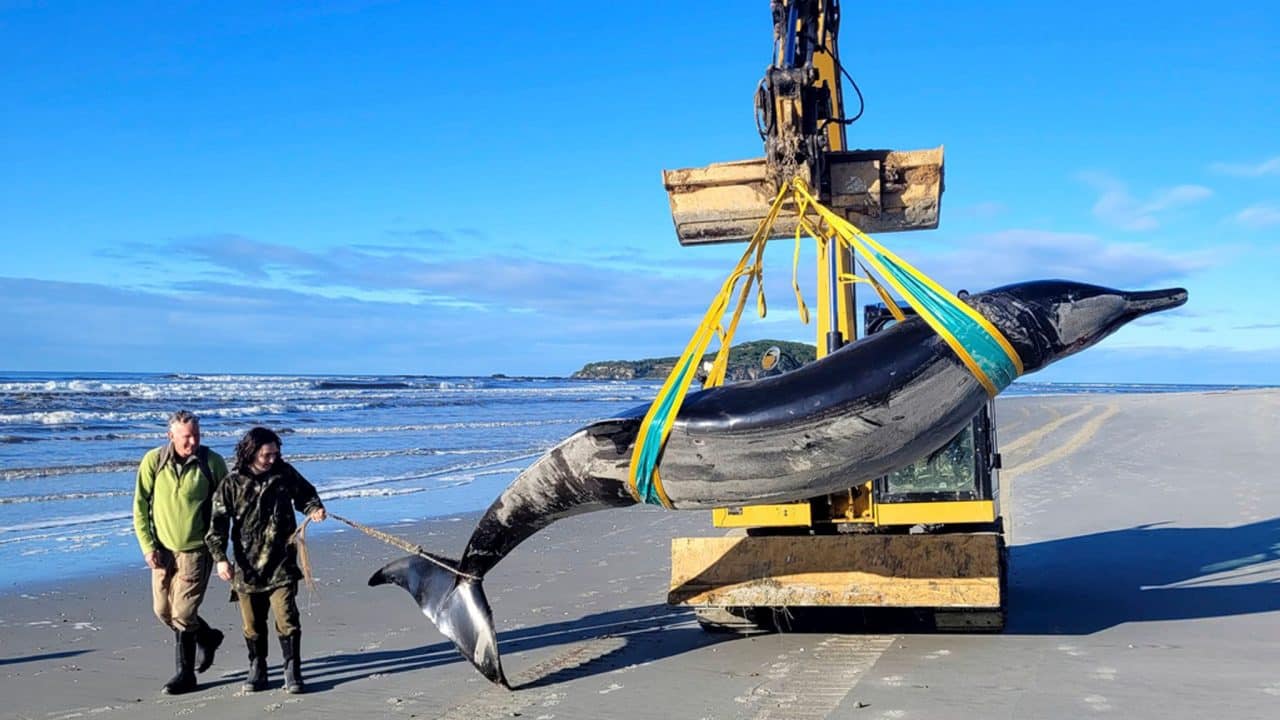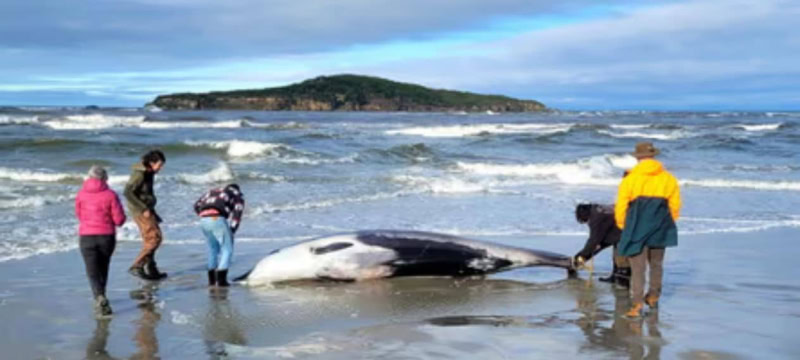One of the world’s rarest whales, about which scientists know “practically nothing,” may have washed up on a beach in New Zealand. The deceased mammal, discovered in Otago on the South Island, is believed to be a spade-toothed whale, which has never been observed alive in the wild.
New Zealand’s conservation agency identified the whale based on its color patterns and the shape of its skull, beak, and teeth after it washed ashore earlier this month. Hannah Hendriks, a marine technical adviser for the Department of Conservation, stated that “very little” is known about these creatures, and this discovery could lead to significant scientific advancements.
Read more: Argentina Records More than 520,000 Dengue Cases in 2024
If confirmed as a spade-toothed whale, this specimen, measuring five meters long, would be the first in a condition suitable for scientific dissection. Hendriks noted that only six other spade-toothed whales have been identified, with previous finds on New Zealand’s North Island buried before DNA testing could occur.
This time, the whale was quickly moved to cold storage, and researchers are collaborating with local tribes to determine how it will be examined, according to the conservation agency.

No potential reasons have been given for why the whale washed up on the beach. New Zealand’s Indigenous communities regard whales as sacred treasures with cultural importance.
In April, Pacific Indigenous leaders signed a treaty recognizing whales as “legal persons,” although this declaration is not yet reflected in the laws of the participating countries. According to Ms. Hendriks, these whales dive deep for food and surface so infrequently that their exact location can only be estimated within the southern Pacific Ocean.
“It’s very challenging to research marine mammals when you can’t see them at sea,” she noted, calling it “a bit of a needle in a haystack” because it’s difficult to know where to search.
The conservation agency indicated that genetic testing to confirm the whale’s identification may take several months.









